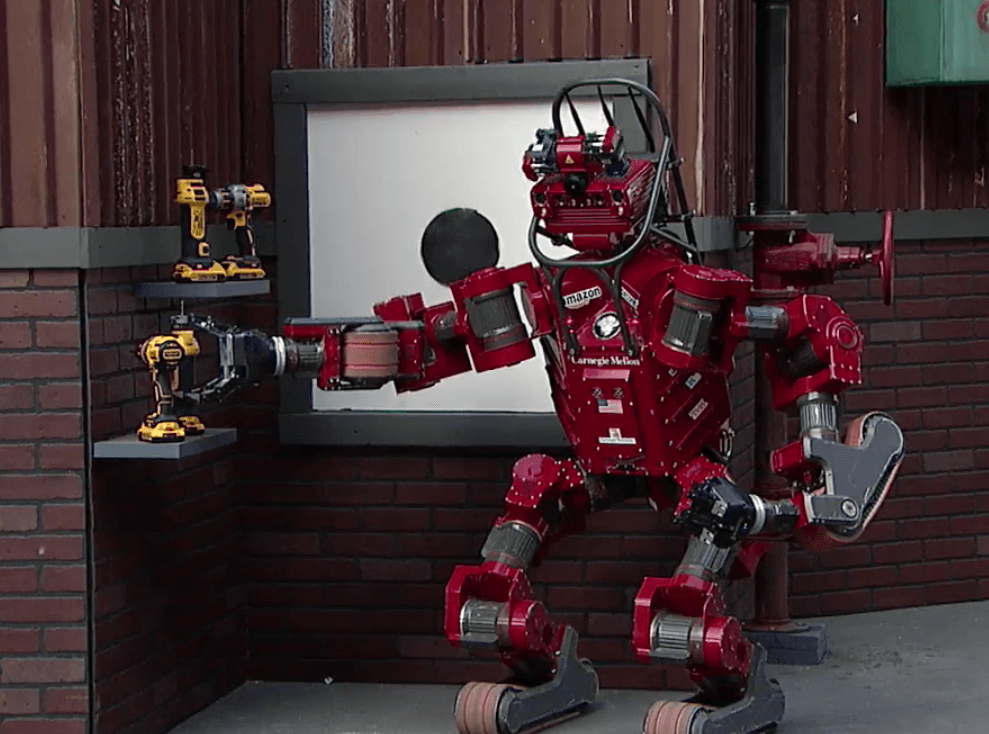The DARPA Robotics Challenge this weekend was about as unimpressive as the 2004 Grand Challenge for driverless vehicles–the “Debacle in the Desert.” It seemed like robocars were decades away from reality, but in the aftermath of that competition autonomous vehicles showed marked improvement in a stunningly short time. The requirements of unplugged robots are greater than that of a driverless car, but the money being currently poured into this research is also far more substantial.
What does the future hold? I’ll quote the technophobe Andre Gregory from the end of the long conversation that makes up most of My Dinner with Andre: “A baby holds your hands, and then suddenly, there’s this huge man lifting you off the ground, and then he’s gone. Where’s that son?”
From a report on the competition from John Markoff at the New York Times:
Despite clear progress since a trial event in Florida in 2013, the robots remain decades away from the science-fiction feats seen in movies like Ex Machina and Chappie.
Instead, the robots seemed more like an array of electronic and hydraulic contraptions that, in some cases, walked in a lumbering fashion on two or four legs and, in other cases, rolled on tracks or wheels. Some of the machines weighed more than 400 pounds. They were equipped with sensors and cameras to permit remote control.
On Friday, the first day of the Robotics Challenge, it took until 2:30 in the afternoon for the first robot to successfully complete the course, seven and a half hours after the competition began. Frequently, the machines would stand motionless for minutes at a time while they waited for wireless connections with their controllers to improve. Darpa degraded the wireless links on purpose to create the uneven communications that would simulate a crisis situation.
Reporters were once again left grasping for appropriate metaphors to describe the slow-motion calisthenics performed by the menagerie of battery-powered machines. Most agreed that “like watching grass grow” was no longer the best description, and Gill Pratt, the Darpa official in charge of the competition, suggested that it had risen to the level of “watching a golf match.”•
Tags: John Markoff

